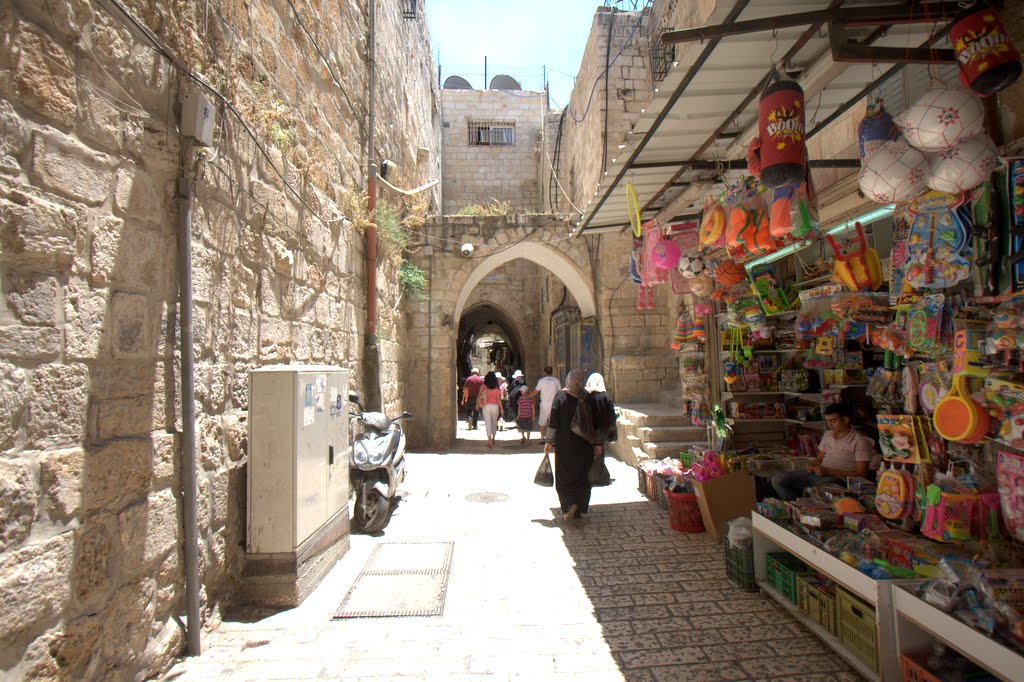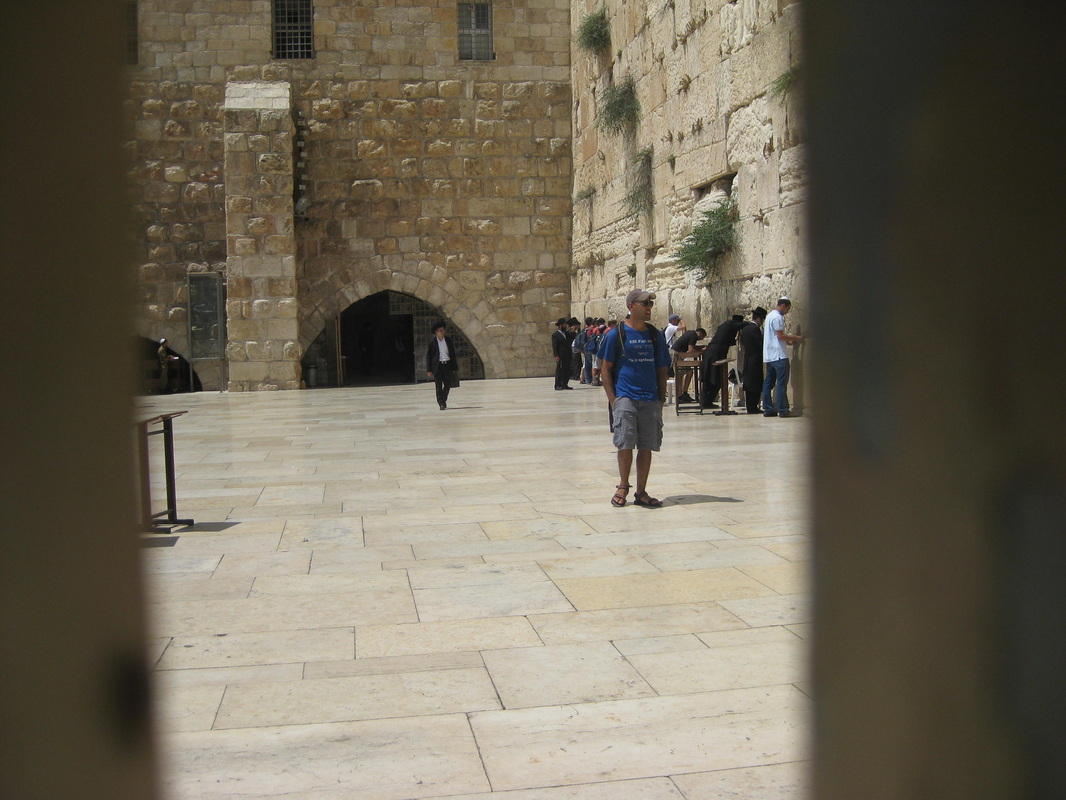Religion Evolving
Images and Thoughts on Religion and Conflict from Bethlehem and Jerusalem
After going through checkpoints a number of times now, and having visited a few of the holy sites in Jerusalem this weekend, I personally have to report a surprising sense of heaviness in the air in this part of the world. It really shouldn't be surprising, since there is so much impotent rage here, yet I also expected to find a spiritual feeling here. Places that are very spiritual tend to feel light to me. Another way of saying it is the air feels thin. These thin places seem closer to awareness, awakening, or salvation.
Instead of finding that lightness, that transformative essence, in Jerusalem, my spirit felt weighed down. Perhaps this was because of being denied entrance to a holy site because I am not Muslim (How could they tell? The color of my skin and the showing hair on my head, I think). Perhaps because of all the checkpoints, the guns, the soldiers, and the guards. Finally, it could have been the overwhelming crowds, heat, and incessant marketing of low-value souvenirs.
The land conflict here is certainly tribal. And religious. And those two are connected here in a way that is hard for me to understand. In the U.S. it's fairly common to separate our religion from our tribe.
There are a lot of problems with religion. Two groups very aware of these problems are thoughtful residents of the Middle East and thoughtful American religious believers. I was one of the latter group as recently as two years ago (I still consider myself a Christian, although my beliefs are such that many Christians would say that I am not one, but that's another story). Young, thoughtful believers are leaving the church in droves, leaving the remainder to ask why.
There's a common phrase people use to describe the state of their soul-beliefs. I heard it a lot in Los Angeles: spiritual but not religious. I believe that those who describe themselves this way are part of a cultural trend that will, I hope, result in the evolution of religion. In A New Earth, Eckhart Tolle writes "The new spirituality, the transformation of consciousness, is arising to a large extent outside of the structures of the existing institutionalized religions."
Religion is where spirituality and community come together. The essence of spirituality is this: we are all connected to everyone and everything. The essence of community is this: we love each other no matter what.
Yet often religion, which should be the nexus of the two, separates us and makes it all too easy to define and differentiate between those who deserve our love and those who don't. Religion seems to specialize in black and white. Not grey.
What I know from my personal spiritual evolution is that for a long time, I couldn't handle grey area. The certainty of dogma appealed to me. Here is what is right, here is what is wrong. I still believe in absolutes truths, but I don't think any one religion has them all.
For me that moment when I could think "Ah! I don't have to actually believe, literally, that Mary was a virgin to learn from her example of purity of heart, faith, and maternal love. She said yes. What a beautiful metaphor. Maybe I can say yes too," was a life-giving breakthrough. It freed me to have faith and spirituality without leaving my brain behind.
From that point, I realized most of what I had tried so hard to believe -- much of it unpalatable to the intellect -- were teaching metaphors, not absolute truths. Taking them seriously and intensely is very important. I think this is why many people feel they must believe in such a literal way. If it's not true, it has no value for them. Yet there is great value in art, in literature, in many things created by humans to express life-giving concepts.
Perhaps the best hope for peace here in the Middle East is what Tolle calls "a large-scale opening of spirituality outside of the religious structures."
I'm not sure anything could have confirmed my decision to change my thoughts on religion a couple of years ago more than visiting Jerusalem this weekend did. When I was in Jerusalem, it was evident to me that all three monotheistic religions come from the same source, and therefore what they teach cannot all be true in the literal sense. What was also clear is that what people here are fighting for is not love, freedom, salvation, peace, or any of the things that their religions promise. What people are fighting for is the right to identify with a place and say that it belongs to them because of what they look like, who their ancestors are, and what they call themselves. It's not about spirituality. At best, the fight is about heritage. About history. And I believe all the people in the world should be able to respectfully visit heritage sites and pray --or not-- in the way they choose.
I understand the good heart behind religion; it's about helping people have hope and peace, and in tribal cases, reminding people where they come from.
I believe that about Israelis and Palestinians, and I believe that about you and me. Yes indeed.
"I imagine that yes is the only living thing.” - E.E. Cummings
Right now, I'm saying yes to watching the fading light of the glorious post-sunset twilight here on my balcony in Ramallah. The air here, on the outskirts of town, is lighter than in the big metropolis of Jerusalem. Kids scream with delight as they play on the street several levels below. It is a spiritual moment, my daily bread today. You are here with me, as I imagine you experiencing your own diverse daily bread moments all over the world.




